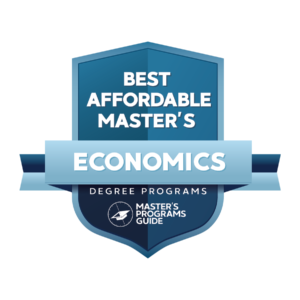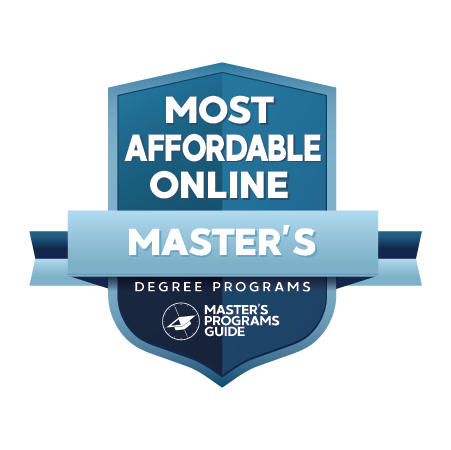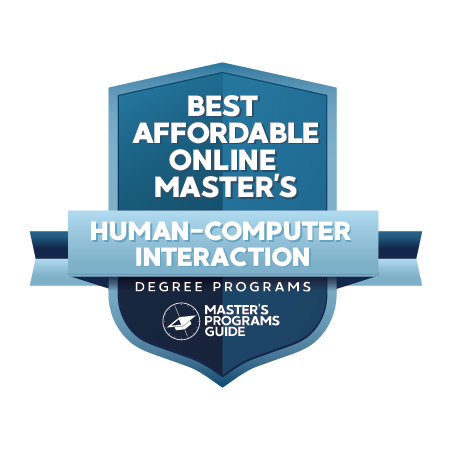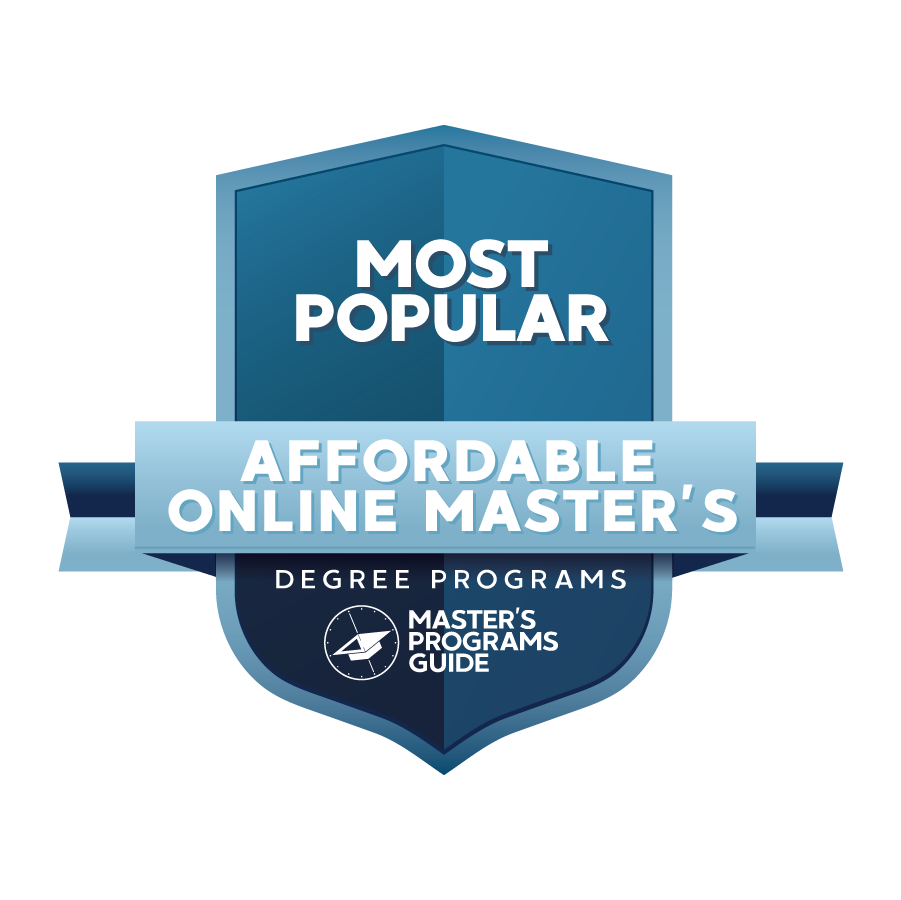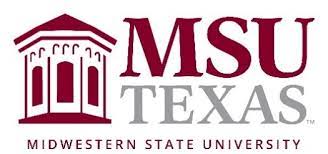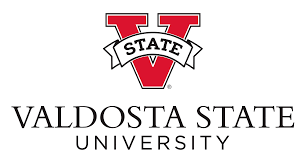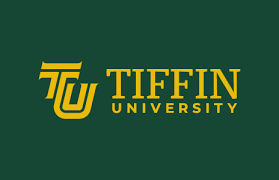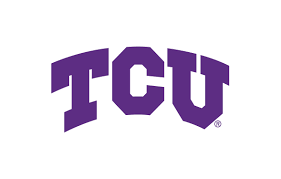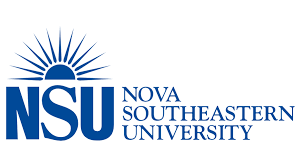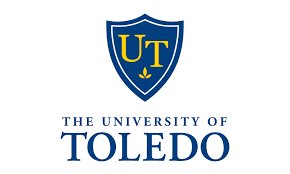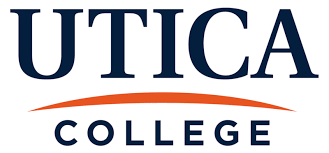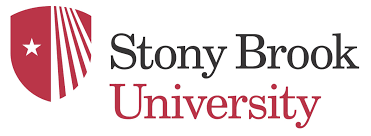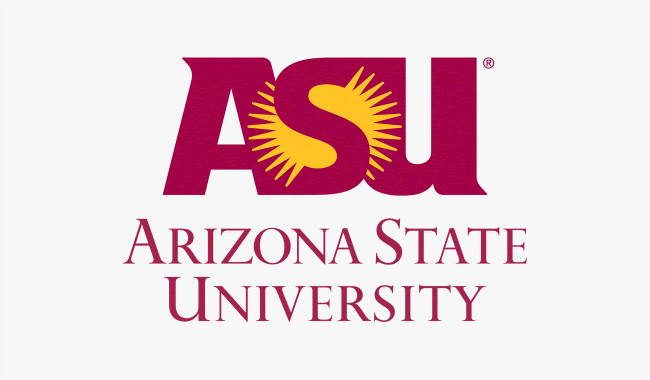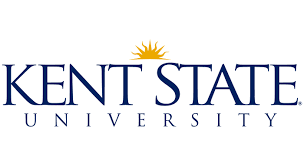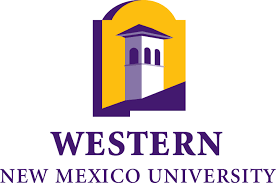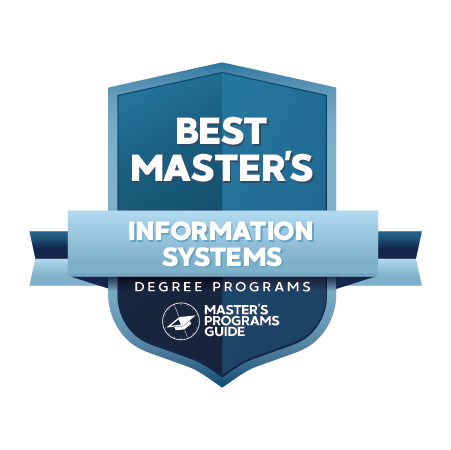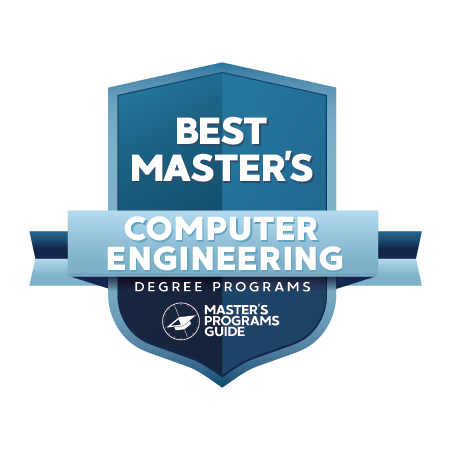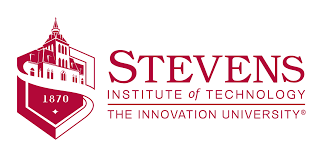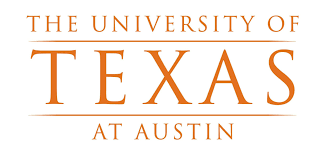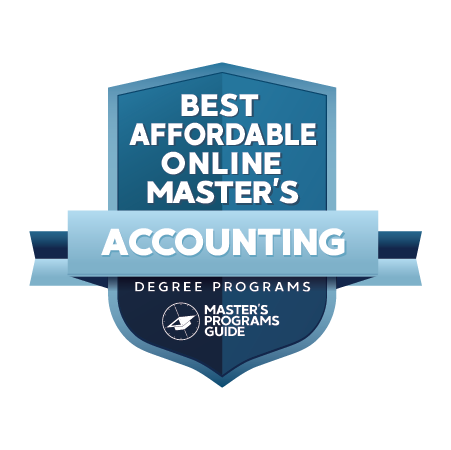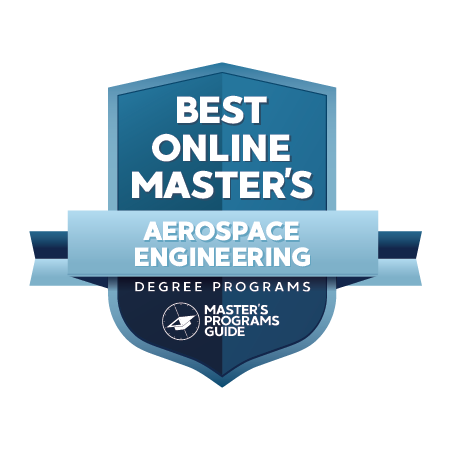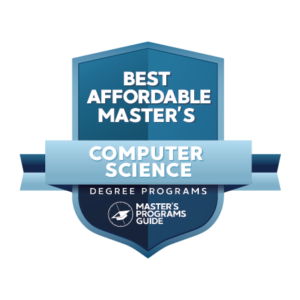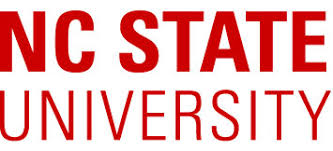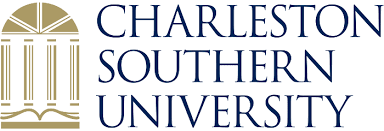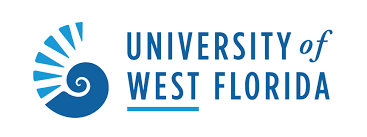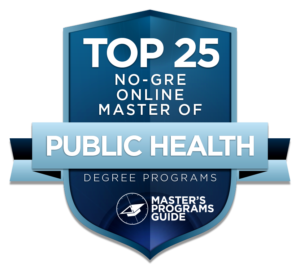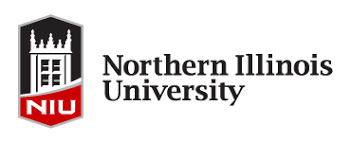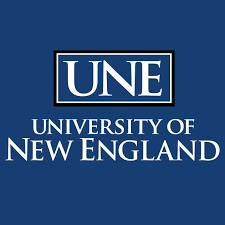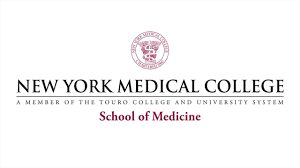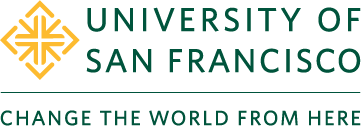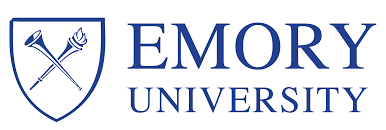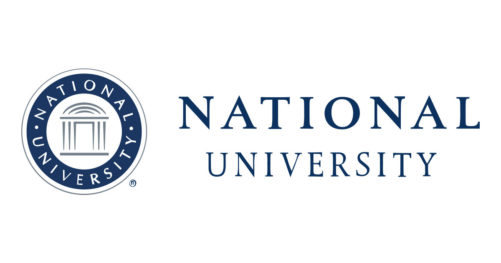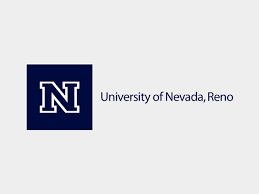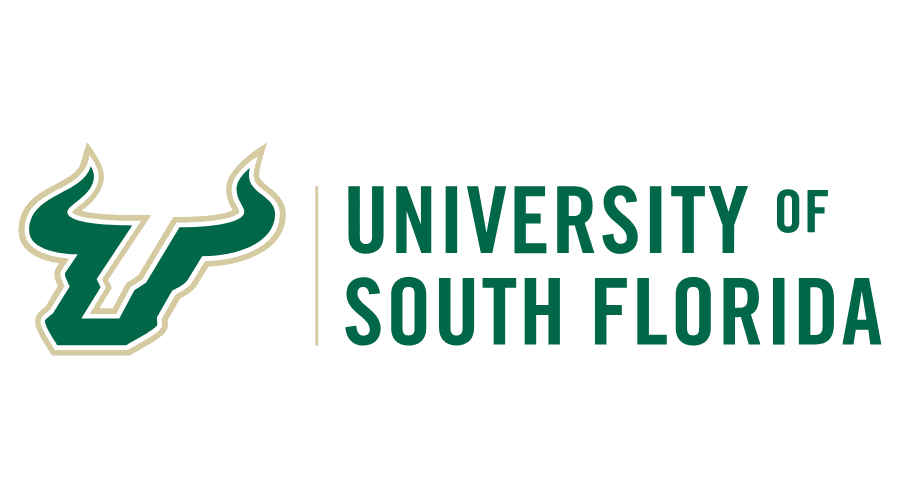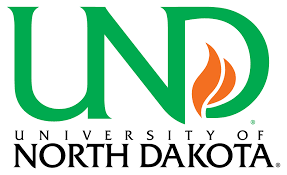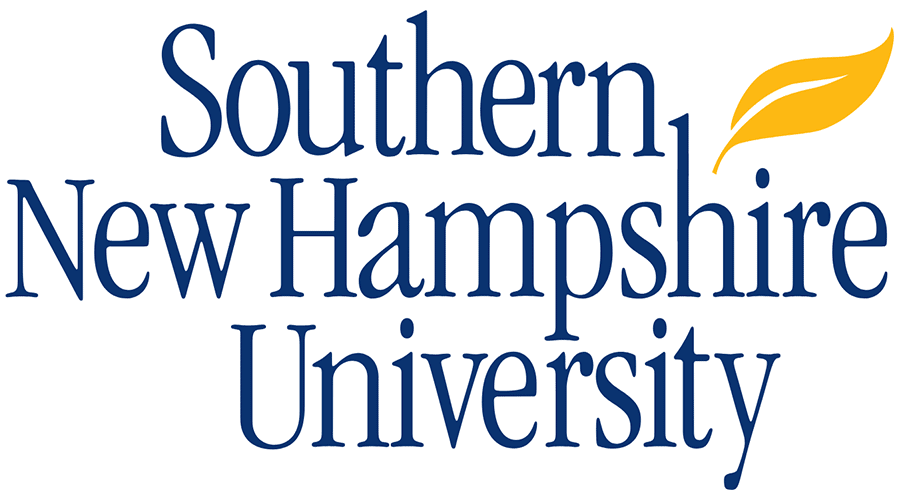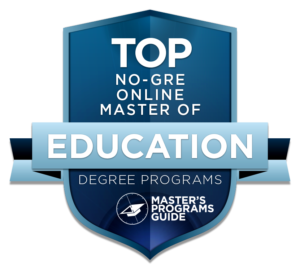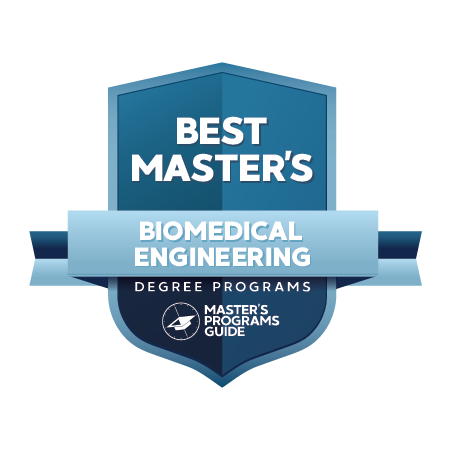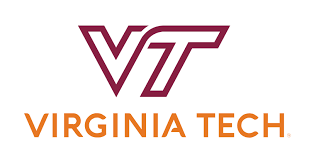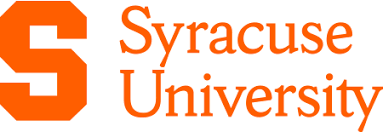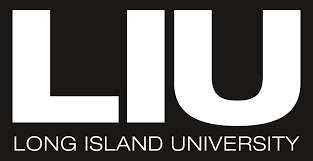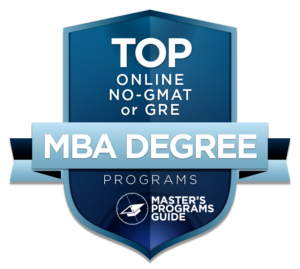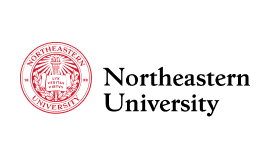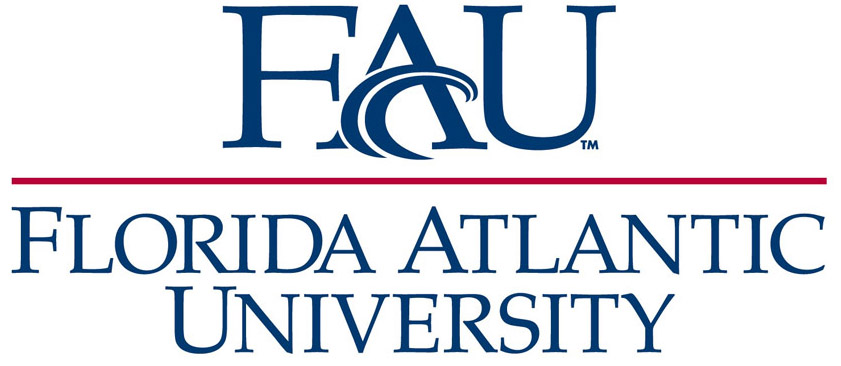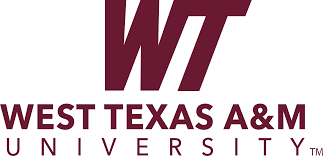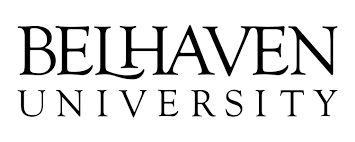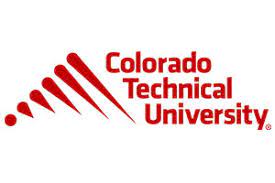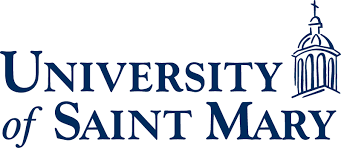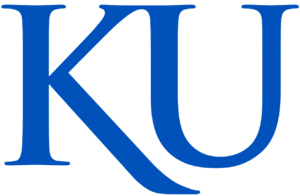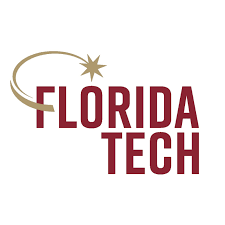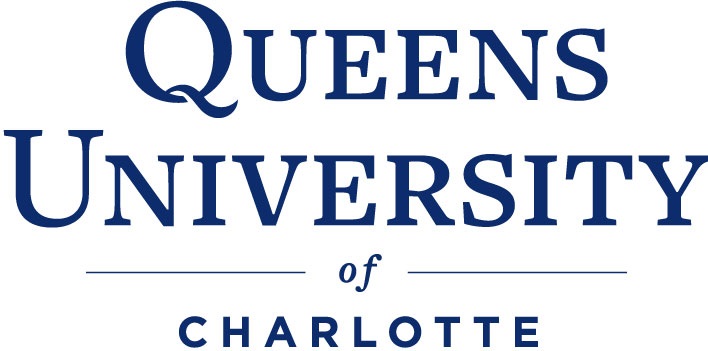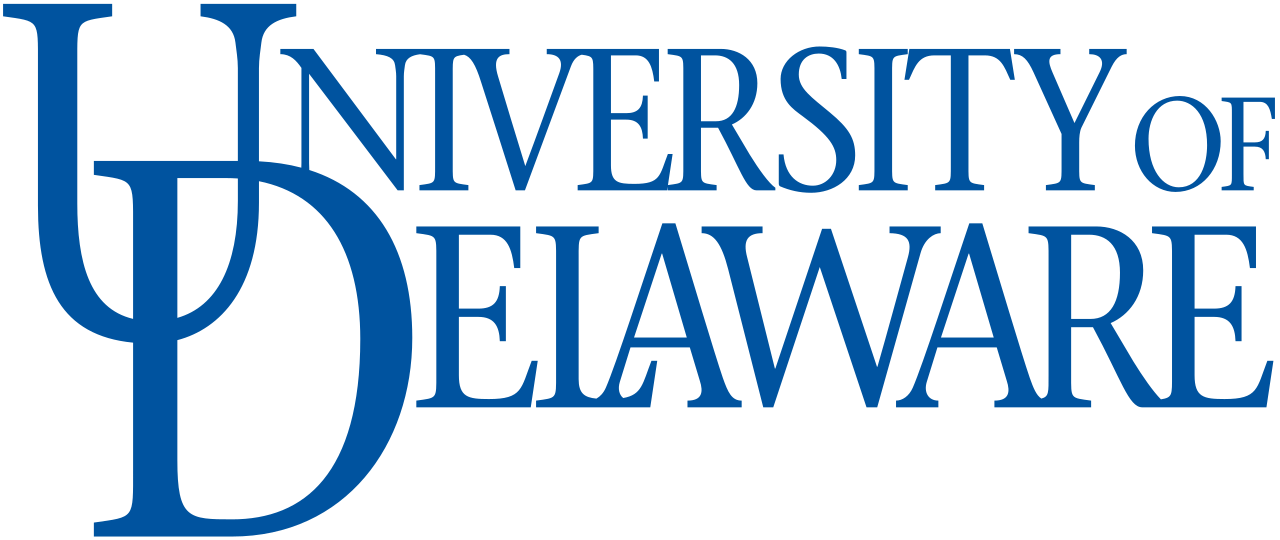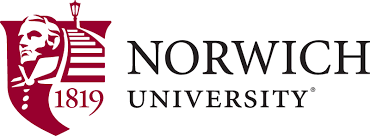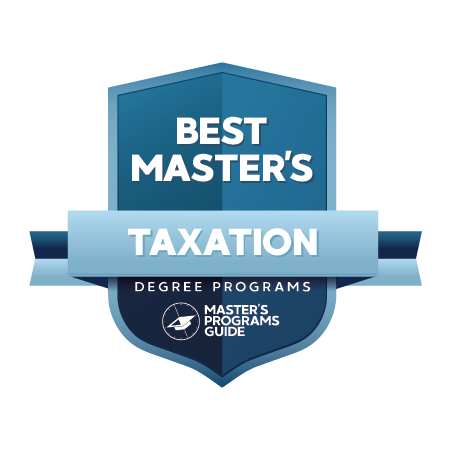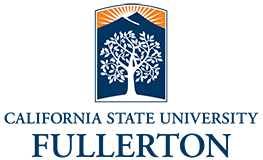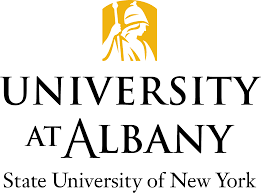
Health Education involves several facets; instructional health educators work primarily in schools, while governmental officials and agents are concerned with public health. Researchers may be called upon to educate a specific sector of the population based on their findings and health and safety administrators and inspectors seek to educate businesses in the food industry to protect the public health. Both public and private sectors benefit from qualified instructors and advocates to ensure the overall health of the general public. Health education requires the study of specific disciplines that exceed Bachelor’s degrees. The following list of schools represents the best overall value and quality of program for Health Education programs. Programs described herewith include Health Education, Public Health, Health Informatics and other related degree programs.
Quick Links to Our Top 10
- Touro University Worldwide
- Cleveland Chiropractic College – Kansas City
- University of Scranton
- Chatham University
- Idaho State University
- Jacksonville State University
- Lock Haven University
- Marymount University
- East Carolina University
- Loma Linda University
Methodology: The methodology used to compile this ranking was based on the individual metric of the number of programs available online, program popularity (enrollment), graduation rate, and student to faculty ratio. Ties were broken by comparing the number of programs, then enrollment figures.
- Number of online programs (40%)
- Enrollment (20%)
- Graduation rate (20%)
- Student-to-faculty ratio (20%)
Saint Joseph’s University is a private, coeducational, Jesuit institution of higher education located in western Philadelphia and Montgomery County, Pennsylvania. Established in 1851 by the Society of Jesus, Saint Joseph is firmly rooted in its Jesuit foundation and is known for its demanding, yet supportive educational experience. The University’s mission is to provide a “rigorous, student-centered education rooted in the liberal arts.” Its mission statement continues, “We prepare students for personal excellence, professional success, and engaged citizenship. Striving to be an inclusive and diverse community that educates and cares for the whole person, we encourage and model lifelong commitment to thinking critically, making ethical decisions, pursuing social justice, and finding God in all things.” Accredited by the Middle States Commission on Higher Education, Saint Joseph’s comprises the College of Arts and Sciences and the Erivan K. Haub School of Business and offers 55 undergraduate majors and 50 minors, over 30 degree completion and certificate programs (including online options), and 52 graduate programs in business or arts and sciences.
Program Details
Saint Joseph’s University offers a Master of Science in Health Education designed to promote family, organizational and community health. Taught by expert faculty members from a multidisciplinary curriculum, students receive one-on-one mentoring from their professors who provide invaluable practical insight for the graduate experience. Available with a concentration in Applied Behavioral Analysis, this concentration option adds value to the Health Education degree as it prepares students to “develop treatment plans for individuals dealing with behavioral disorders and learning obstacles, supervise behavior intervention plans, and develop strategies for wellness management.” The MS in Health Education concludes with a capstone research project which gives students the opportunity to maximize their practical experience while engaging in research.
Admissions
Located in Manchester, New Hampshire, Southern New Hampshire University (abbreviated SNHU) is a private, nonprofit and nonsectarian university. Established in 1932, SNHU is currently one of the fastest-growing universities in the nation with over 73,000 total enrolled students. Accredited by the New England Association of Schools and Colleges as well as several other accrediting bodies, SNHU offers 200 career-focused online and on-campus college degree programs and offers some of the nation’s most affordable tuition rates. The University’s mission is to transform the lives of its students. In its formal mission statement, the University declares, “Our success is defined by our students’ success. By relentlessly challenging the status quo and providing the best support in higher education, Southern New Hampshire University expands access to education by creating high quality, affordable and innovative pathways to meet the unique needs of each and every student.”
Program Details
Southern New Hampshire University offers an online Master of Science in Health Information Management (HIM). A unique program, SNHU’s online HIM is only one of a few online graduate degrees of its kind available, offering the opportunity for health professionals to advance their careers in managing and organizing patient data. A 36-credit-hour program, the HIM curriculum covers a wide range of issues related to information management in healthcare settings including the creation of presentations and reports, healthcare data security, and ensuring industry best practices related to ethical issues and information management. The program concludes with a capstone in which students use what they have learned to design a comprehensive project for a complicated business environment. Aside from the expert instruction and high quality academics students receive, other benefits of SNHU’s HIM program is its affordability, convenience, flexibility, excellent student support, and opportunity for nationwide networking.
Admissions
Capella University is a for-profit, online institution of higher education headquartered in Minneapolis, Minnesota. Owned by the Capella Education Company, the University was founded in 1993 as The Graduate School of America (TGSA) built on the belief that “quality higher education should be broadly accessible to working adults.” In 1997 the institution was granted accreditation through the Higher Learning Commission and graduated its first students. In 1999 TGSA was officially became Capella University, named for the brightest star in the constellation Auriga. Capella University offers a wide range of doctoral, master’s, and bachelor’s degrees as well as a number of certificate programs. Students can choose from two online-learning formats, FlexPath, a self-paced, pay-per-session format, and GuidedPath. The University’s mission is to “extend access to high quality bachelor’s, master’s, doctoral, and certificate programs for adults who seek to maximize their personal and professional potential.” This statement continues, “This mission is fulfilled through innovative programs that are responsive to the needs of adult learners and involve active, engaging, challenging, and relevant learning experiences offered in a variety of delivery modes.”
Program Details
Capella University offers a Master of Public Health (MPH) through the School of Nursing & Health Sciences. Available entirely online with 15 courses and a practicum, Capella University’s MPH program takes an interprofessional approach to learning which allows for collaboration across disciplines in order to “develop solutions to public health issues, create healthy communities and environments, and establish strategies for health access for diverse populations.” Students gain real-world experience through the program’s 80-hour, hands-on practicum; benefit from one-on-one leadership coaching to identify each student’s own leadership style and strengths; and learn from a professionally relevant curriculum.
Admissions
The University of California-Berkeley (UC-Berkeley) is a four-year, public university located in Berkeley, California and a member of the University of California System. Established in 1868, the University was born out of a vision to create an institution that would “contribute even more than California’s gold to the glory and happiness of advancing generations.” Today the University of California’s overarching mission is “to serve society as a center of higher learning, providing long-term societal benefits through transmitting advanced knowledge, discovering new knowledge, and functioning as an active working repository of organized knowledge.” UC-Berkeley offers nearly 300 degree programs, is accredited by the Western Association of Schools and Colleges, and comprises 184 academic departments and 14 colleges and schools. These include the College of Chemistry; the Graduate School of Education; Berkeley Engineering; Berkeley Environmental Design; the Haas School of Business; the Berkeley School of Information; the Graduate School of Journalism; Berkeley Law; the Berkeley College of Letters & Science; the College of Natural Resources; the School of Optometry; the Berkeley School of Public Health; the Richard and Rhoda Goldman School of Public Policy; and Berkeley Social Welfare.
Program Details
The University of California-Berkeley offers a master of Public Health (MPH) program through its School of Public Health. The MPH degree is built on a serious of foundational courses and is available with concentrations in Biostatistics, Environmental Health Sciences, Epidemiology, Epidemiology/Biostatistics, Health and Social Behavior, Health Policy and Management, Infectious Diseases and Vaccinology, Interdisciplinary, Maternal and Child Health, and Public Health Nutrition. UC-Berkeley’s MPH is available entirely online, on-campus or in a hybrid format which requires two accelerated on-campus sessions.
Admissions
46. A.T. Still University
A.T. Still University is a private, nonprofit healthcare educator and the founding institution of osteopathic healthcare. Established in 1892 by Andrew Tyler Still, the University operates two campuses in Kirksville, Missouri and Mesa, Arizona. A leading health sciences university, A.T. Still University is renowned for its preeminence as a multidisciplinary healthcare educator with a focus on “integrating the founding tenants of osteopathic medicine and the advancing knowledge of today’s science.” The University is accredited by the Higher Learning Commission and comprises several colleges and schools, including the Arizona School of Dentistry & Oral Health, the Arizona School of Health Sciences, the College of Graduate Health Studies, the Kirksville College of Osteopathic Medicine, the Missouri School of Dentistry & Oral Health, and the School of Osteopathic Medicine in Arizona. The University’s mission is to serve “as a learning-centered university dedicated to preparing highly competent professionals through innovative academic programs with a commitment to continue its osteopathic heritage and focus on whole person healthcare, scholarship, community health, interprofessional education, diversity, and underserved populations.”
Program Details
A.T. Stills offers an online Master of Public Health (MPH) degree through the College of Graduate Health Studies. The program is designed to prepare “graduates to become seasoned professionals in the field of public health” and to create “elite healthcare professionals who are prepared and driven to make a difference and lead in the future of healthcare.” A unique program, A.T. Still University’s MPH is designed in close alignment to the latest public health standards and is accredited by the Council on Education for Public Health (CEPH). Each class is limited to 16 students in order to foster valuable one-on-one student-faculty interaction for the cultivation of professional public health connections as well as lifelong relationships.
Admissions
45. Johns Hopkins University
Johns Hopkins University is a private institution located in Baltimore, Maryland. America’s first research university, the institution was named for Johns Hopkins, a 19th century Maryland philanthropist, entrepreneur and an abolitionist. Hopkins possessed a Quaker heritage and believed in improving education and public health in Maryland and beyond. A leading academic institution, Johns Hopkins University reported $2.306 billion in fiscal year 2015 in medical, science, and engineering research. The University has ranked #1 in higher education research spending, according to the National Science Foundation, for 37 consecutive years. Maryland’s largest employer, the University has a total enrollment figure of 24,000 students and comprises of nine academic divisions. These include the School of Advanced International Studies; Applied Physics Laboratory; Krieger School of Arts and Sciences; Carey Business School; School of Education; Whiting School of Engineering; School of Medicine; School of Nursing; Peabody Institute; and the Bloomberg School of Public Health. Johns Hopkins University’s mission is “To educate its students and cultivate their capacity for lifelong learning, to foster independent and original research, and to bring the benefits of discovery to the world.”
Program Details
Johns Hopkins University offers a Master of Arts in Public Health Biology through the Bloomberg School of Public Health. Offered entirely online, the program is available on a part-time schedule and allows students to “advance in current research or teaching positions; enhance credentials for a new position in academic institutions, industry or governmental research organizations, or gain a solid foundation for medical school, dental school or advanced graduate work.”An interdepartmental program, the MA in Public Health Biology involves the participation of the Biochemistry and Molecular Biology Department, the Environmental Health and Engineering Department, and the Molecular Microbiology and Immunology Department. The program is “designed to foster knowledge of, and appreciation for, modern biological principles and research methods,” culminating in the writing of a literature-based scholarly thesis.
Admissions
Harvard University, one of the most prestigious universities in the world, is a private Ivy League research university located in Cambridge, Massachusetts. Established in 1636 by the Massachusetts Legislature, Harvard University is the oldest institution of higher education located in the United States. Its list of alumni includes eight U.S. presidents and several foreign heads of states. Named for its first benefactor, John Harvard, the University was originally a training college for members of the clergy, headed by prominent Puritan leaders such as Increase Mather. 1708 marked the true turning point for the school away from Puritanism and towards intellectual independence when the first non-clergy member, John Leverette, was elected president. Today, Harvard seeks to “educate the citizens and citizen-leaders” of society and offers over two hundred programs through its several schools. These include Harvard Business School; Harvard College; Division of Continuing Education; Harvard School of Dental Medicine; Harvard Divinity School; Faculty of Arts & Sciences; Graduate School of Design; Harvard Graduate School of Education; Graduate School of Arts & Sciences; Harvard John A. Paulson School of Engineering and Applied Sciences; Harvard Kennedy School; Harvard Law School; Harvard Medical School; Radcliffe Institute for Advanced Study; and Harvard T.H. Chan School of Public Health.
Program Details
Harvard University is institutionally accredited by the New England Association of Schools and Colleges, Commission on Institutions of Higher Education. The University offers a Master of Public Health (MPH) in Epidemiology available in a blended online/on-campus format. Housed by the Harvard T.H. Chan School of Public Health, the MPH features an innovative curriculum designed to “open clear paths to action-oriented professional careers.” The program is available as a 45-credit MPH or a 65-credit MPH, each available with part-time options that allow students to complete the entire program in as little as two-to-three years.
Admissions
43. Rosalind Franklin University of Medicine and Science
Rosalind Franklin University of Medicine and Science is a private, nonprofit, four-year institution of higher education located in North Chicago, Illinois. Named for the scientist who captured the photograph which revealed the structure of DNA, Dr. Rosalind Franklin, the University is built upon a spirit of inquiry, diligence, and academic excellence. The University offers over 30 graduate health profession and science programs in a team-based environment which allows for interdisciplinary learning and practice opportunities. Comprising multiple colleges and schools, these include the Chicago Medical School, the College of Health Professions, the College of Pharmacy, the Dr. William M. Scholl College of Podiatric Medicine, and the School of Graduate and Postdoctoral Studies. The University’s mission is to “serve the population through the interprofessional education of health and biomedical professionals and the discovery of knowledge dedicated to improving the wellness of its people.” Its vision is “to achieve national recognition as the premier interprofessional health sciences university.”
Program Details
Rosalind Franklin University of Medicine and Science offers a Master of Science in Health Promotion and Wellness through the Chicago Medical School. Geared toward health practitioners and fitness professionals who are interested in offering an enhanced level of wellness services, this program is designed to offer convenience and flexibility to professionals thanks to its online format. Accredited by the Liaison Committee on Medical Education (LCME), the program prepares innovative leaders who will be able to “teach people to lead a healthy lifestyle; help organizations develop wellness plans to keep employees healthy and decrease healthcare costs; help people with chronic diseases improve their quality of life and reduce disability; [and] encourage people to adopt healthy lifestyles to prevent disease.”
Admissions
42. University of Pennsylvania
The University of Pennsylvania is a private, nonprofit, coeducational institution of higher education located in West Philadelphia on a 299-acre main campus. The University traces its roots back to 1740 when George Whitfield, a prominent evangelist, set out to build a charity school in Philadelphia which would double as a house of worship. Mid-way through construction, however, the cost became too much for the available resources and the project was left incomplete for a decade. In 1749 Franklin published his famous essay, ‘Proposals Relating to the Education of Youth’, which circulated among the leading citizens of Philadelphia who organized 24 trustees to form an institution of higher education. Whitefield’s “New Building” was purchased for this purpose and in 1751 the doors of the Academy and Charitable School in the Province of Pennsylvania were opened for members of the gentry and working class alike. Franklin served as the president of the institution until 1755 and continued on as a trustee of the school until his death in 1790. Today the University of Pennsylvania remains dedicated to its proud tradition of “translating knowledge into social-minded action,” following the maxim of Ben Franklin that “well-done is better than well-said.” The University committed to scholarship and learning and offers a wide range of programs through its four undergraduate schools and its twelve graduate and professional schools.
Program Details
The University of Pennsylvania offers a institution-wide, interdisciplinary Master of Public Health Program (MPH). Housed by the University’s School of Medicine, the program is made available through cooperation with faculty from Nursing, Arts and Sciences, Veterinary Medicine, Wharton School of Business, Dental Medicine, and Social Policy and Practice. The program’s overall objective is to “provide a focal point for enhancing collaborations in public health research and practice,” with the goal that this program would be a model for training the next generation of health leaders.
Admissions
41. New York Medical College
New York Medical College is a private biomedical health sciences university and a member of the Touro College and University System located in Valhalla, New York. Established in 1860, New York Medical College (NYMC) has been a long-time bastion against anti-Semitism and bigotry, historically ahead of its time; female students were admitted quite early on in 1863 and the College’s first African-American graduate was valedictorian of the Class of 1870. Founded upon the values of Humanism, Cultural Competency, Professionalism, Intellectual Curiosity and Scientific Inquiry, among others, NYMC’s mission as a health sciences college is to “educate physicians, scientists, public health specialists, and other healthcare professionals, and to conduct biomedical and population-based research.” Its mission statement continues, “New York Medical College believes that the rich diversity of its student body and faculty is important to its mission of educating outstanding health care professionals for the multicultural world of the 21st century.” NYMC is accredited by the Middle States Commission on Higher Education and offers 35 academic programs.
Program Details
New York Medical College offers a Master of Public Health (MPH) with a specialization in Behavioral Sciences and Health Promotion. A 46-credit-hour program, the degree may be completed in a traditional classroom format, entirely online, or as a hybrid, blending both on-campus and online. The program is designed to provide students with a “clear understanding of the role of behavior and social influences in illness and health, and the skills necessary to develop effective public health intervention strategies to reduce risk and promote health.” Students are taught techniques for behavior change; gain a solid foundation necessary for a career in health education-related fields; and develop the ability to “examine and propose research focused on the behavioral, social, and cultural influences that impact the health of individuals, communities and populations.”
Admissions
The University of North Carolina-Chapel Hill (UNC-Chapel Hill) is a public research university located in Chapel Hill, North Carolina and a member of the North Carolina University System. UNC-Chapel Hill was chartered in 1789, making it the oldest and first public university in the nation. A leader in global higher education, UNC-Chapel Hill is known for its innovative teaching, research and public service and is a member of the Association of American Universities. The University offers over 150 undergraduate, graduate, and professional degree programs through its several schools and the College of Arts and Sciences. These include the Schools of Dentistry; Education; Government; Information & Library Science; Law; Media & Journalism; Medicine; Nursing; Social Work; the Eshelman School of Pharmacy; the Friday Center for Continuing Education; the General College; the Gillings School of Global Public Health; UNC’s Graduate School; the Kenan-Flagler Business School; and the Summer School. UNC-Chapel Hill’s mission is “to serve as a center for research, scholarship, and creativity and to teach a diverse community of undergraduate, graduate, and professional students to become the next generation of leaders.”
Program Details
The University of North Carolina-Chapel Hill offers Master of Public Health in Leadership and Practice (MPH). Available in an online format, UNC-Chapel Hill’s MPH is designed to “teach current and aspiring public health professionals to apply leadership principles in a public health context.” The MPH Core serves as the centerpiece of the degree and is a single, integrated 12-credit curriculum which spans nearly a dozen concentrations. The Leadership Practice concentration equips students with the skills and knowledge necessary to head teams, projects, organizations and systems in improving conditions, eliminating inequities, and fostering change within local and global communities. Offered through UNC’s Gillings School of Global Public Health, the program is fully accredited by the Council on Education for Public Health.
Admissions
Binghamton University is a premier, public university located in the suburbs of Binghamton in Vestal, New York on a 930-acre wooded, hillside campus set above the Susquehanna River. A top-ranking institution, Summing up its values into the three simple words, Unity, Identity and Excellence, Binghamton University’s mission as a premier public university is to be “dedicated to enriching the lives of people in the region, state, nation and world through discovery and education and to being enriched by partnerships with those communities.” Its vision is to remain “dedicated to higher education,” combining “an international reputation for graduate education, research, scholarship and creative endeavor with the best undergraduate programs available at any public university.” Nearly 14,000 students are enrolled, coming from over 100 countries and nearly all fifty states. Accredited by the Middle States Commission on Higher Education, Binghamton University offers a wide range of undergraduate and graduate programs through its several colleges and schools. These include the Harpur College of Arts and Sciences, the College of Community and Public Affairs, the Decker School of Nursing, the School of Management, the Thomas J. Watson School of Engineering and Applied Science and the School of Pharmacy and Pharmaceutical Sciences.
Program Details
Binghamton University offers a Master of Public Health (MPH) program through its Graduate School, designed to prepare graduates to “prevent disease and promote health by addressing underlying environmental factors and social determinants, with the ultimate goal of achieving health equity among populations.” Available as either a full- or part-time study program, students have the opportunity to participate in a number of experiential learning opportunities including internships, research opportunities and more. The curriculum is designed to prepare students for a wide range of careers within the public, private and nonprofit sectors, covering the core areas of social and behavioral sciences, biostatistics, environmental health, epidemiology, and public policy.
Admissions
38. Grand Canyon University
Grand Canyon University is a private, coeducational, Christian institution of higher education located in Phoenix, Arizona. Known as the premier private Christian university in the state of Arizona, Grand Canyon University (GCU) began in 1949, founded by the Southern Baptist Church. After struggling to stay open during the early 2000s due to a dwindling in financial support, in 2004 the University became the first for-profit Christian institution of higher education. By the end of the year 2004 new business practices were implemented emphasizing both curriculum and the creation of opportunities for working professionals. Today Grand Canyon is a thriving institution and operates with the vision of being “a premier Christian university, educating students to lead and serve.” Its mission is to prepare “learners to become global citizens, critical thinkers, effective communicators and responsible leaders by providing an academically challenging, values-based curriculum from the context of our Christian heritage.” Accredited by the Higher Learning Commission, the University comprises several colleges including the College of Doctoral Studies, Colangelo College of Business, College of Education, College of Fine Arts and Production, College of Humanities and Social Sciences, College of Nursing and Health Care Professions, College of Science, Engineering and Technology, College of Theology, and the Honors College.
Program Details
Grand Canyon University offers a Master of Science in Nursing with an emphasis in Public Health. Made available through the College of Nursing and Health Care Professions, the MSN in Public Health can be earned entirely online, making it a highly convenient and flexible learning option for busy professionals. Through the program, students are exposed to content and knowledge from both the nursing and public health fields, developing in them a “heightened understanding of public policies, theories, principles and their application to real-life cases.”
Admissions
Mississippi State University is a public, comprehensive, doctoral degree-granting institution located in Starkville, Mississippi. Established in 1878 under the Morrill Act of 1862, Mississippi State University (MSU) began as the Agricultural and Mechanical College of the State of Mississippi with a mission to provide training in “agriculture, horticulture and the mechanical arts… without excluding other scientific and classical studies, including military tactics.” In 1926 the institution gained accreditation through the Southern Association of Colleges and Schools and in 1932 was renamed Mississippi State College followed by Mississippi State University in 1958. Today the University is dedicated to the broad purposes of learning, research, and service, seeking to provide “the academic, leadership, and social opportunities to help each person excel.” MSU offers a wide range of undergraduate and graduate programs and comprises the College of Agriculture and Life Sciences, including the School of Human Sciences; College of Architecture, Art and Design; College of Arts and Sciences; College of Business, including the Adkerson School of Accountancy; College of Education; Bagley College of Engineering, including the Swalm School of Chemical Engineering; College of Forest Resources; Office of the Graduate School, and College of Veterinary Medicine.
Program Details
Mississippi State University offers an online Masters in Food Science, Nutrition & Health Promotion. Available entirely online, the program is offered by the Department of Food Science, Nutrition and Health Promotion and the Center for Distance Education at MSU and is available with an emphasis in Health Promotion. Offering advancement in one of the fastest growing industries in the nation, MSU’s Health Promotion program covers Research Methods (9-12 academic hours) with courses such as Principles of Epidemiology, Educational and Psychological Statistics, and Interpretation of Data in Kinesiology; the program’s Core Courses (15 hours), covering topics such as Health Promotion Techniques, Behavioral Epidemiology, and Design/Administration of Health Promotion Programs; and finally Electives (6-9 hours) with options including Social-Cultural Aspects of Food, Prevention and Control of Disease, Current Issues in School Health, and much more.
Admissions
California State University-Northridge (abbreviated CSUN) is a public institution of higher education located in the heart of Los Angeles’ San Fernando Valley in the neighborhood of Northridge on a 356 acre campus. One of the largest single-campus universities in the country, CSUN is accredited by the Western Association of Schools and Colleges (WASC), and offers more than 120 undergraduate and graduate degree programs, including nearly 60 master’s degrees, through its nine colleges. Notable alumni have include 2012’s national Teacher of the Year; multiple California Teachers of the Year; public officials; Grammy Award winners; nationally-recognized newscasters; and a space shuttle astronaut. CSUN’s mission is to “to enable students to realize their educational goals” by designing “programs and activities to help students develop the academic competencies, professional skills, critical and creative abilities, and ethical values”. This mission statement continues, “…we seek to foster a rigorous and contemporary understanding of the liberal arts, sciences, and professional disciplines”. Built upon the values of “Respect for All People; Alliances within the Community; [and] Encouragement of Innovation, Experimentation, and Creativity”, CSUN is committed to “Teaching, Scholarship, and Active Learning” as well as to Excellence in all that they do.
Program Details
California State University-Northridge offers a Master of Public Health in Community Health Education. Available entirely online, this program is designed in collaboration with the University’s College of Health and Human Development. Designed for individuals who have the goal of “protecting human health through education, promotion of healthy lifestyles, and research in the areas of disease and injury prevention,” the program covers the core areas of public health and professional preparation and includes field training in the public sector. Students study biostatistics, environmental health, epidemiology, health policy and management, and social and behavioral science and gain practical hands-on experience through field training which helps to foster their decision-making skills.
Admissions
Purdue University is a four-year, public, land-grant institution headquartered in West Lafayette, Indiana. Established under the land-grant act in 1869, today, Purdue University is known for its “scholarly excellence and research contributions in the fields of aerospace, engineering, science, technology and math.” The alma mater of notable figures including Neil Armstrong, first man to walk on the moon, and home to multiple notable faculty members including Ei-ichi Negishi, 2010 recipient of the Nobel Prize in
chemistry, and two recipients of the World Food Prize, Philip Nelson and Gebisa Ejeta, Purdue University enrolls well over 40,000 students, maintaining an average student to faculty ratio of 12 to 1. The University is accredited by the Higher Learning Commission and offers a wide range of programs through its several colleges and schools. These include the College of Agriculture; the College of Education; the College of Engineering; the College of Health and Human Sciences; the College of Liberal Arts; the Krannert School of Management; the College of Pharmacy; the Purdue Polytechnic Institute; the College of Science; the College of Veterinary Medicine; the Honors College; and The Graduate School.
Program Details
Purdue University offers an online Master of Public Health, accredited by the Council on Education for Public Health (CEPH). The degree program is designed for “individuals who are interested in identifying and enacting public health solutions locally, nationally and globally.” Taught by accomplished practitioners who provide science-based knowledge, the program’s coursework incorporates real-world examples of public health intervention design, teaching students how to “analyze research studies and then translate them into real-world settings.” The degree is available with an optional concentration in family and community health.
Admissions
The University of North Dakota is a public, coeducational, research university located in a vibrant college town in Grand Forks, North Dakota. The flagship university of the North Dakota University System, the University of North Dakota operates with a mission to serve “the state, the country, and the world community through teaching, research, creative activities, and service.” The University of North Dakota is the state’s oldest and largest institution of higher education and has gained a reputation for both scholarship and research within the fields of health sciences, energy and environment, aerospace, and entrepreneurship. One of only 47 public universities in the nation with both accredited graduate schools of law and medicine, the University of North Dakota offers study options in over 225 field and offers more online programs than any other higher education institution in the state. Comprising several colleges and schools, these include the College of Arts and Sciences; the College of Business & Public Administration; the Chester Fritz Library; the College of Education & Human Development; the College of Engineering and Mines; the School of Graduate Studies; the John D. Odegard School of Aerospace Sciences; the School of Law; and the College of Nursing and Professional Disciplines.
Program Details
The University of North Dakota offers a Master of Public Health through its School of Medicine and Health Sciences. One of the few public health programs that focuses on big health data analytics, the University of North Dakota’s Master of Public Health (MPH) program is designed to “prepare students who respond to the growing demand for public health professionals who can transform data into information for decision-making.” Features and benefits of the program include an emphasis on faculty-student research collaboration; flexibility and accessibility due to the program’s online format and availability at multiple on-site locations; and opportunity for experiential learning through the University’s nationally recognized wellness initiative.
Admissions
The University of Florida is a public, land-, sea-, and space-grant research university located in Gainesville, Florida. The University traces its roots back to 1853 with the establishment of East Florida Seminary, the oldest of four institutions which merged to create the University of Florida as it is known today. The largest and oldest of Florida’s eleven universities, the University of Florida belongs to “a tradition of great universities” and is a member of the Association of American Universities. The University’s mission is threefold, summed up into three words: teaching, research and service. The formal mission statement elaborates, “Teaching is a fundamental purpose of this university at both the undergraduate and graduate levels. Research and scholarship are integral to the educational process and to the expansion of our understanding of the natural world, the intellect and the senses. Service reflects the university’s obligation to share the benefits of its research and knowledge for the public good. The university serves the nation’s and the state’s critical needs by contributing to a well-qualified and broadly diverse citizenry, leadership and workforce.”
Program Details
The University of Florida is accredited by the Southern Association of Colleges and Schools (SACS) and offers an online Master of Science in Health Education and Behavior (HEB). Offered through the College of Health and Human Performance, the HEB program is designed to focus “on the techniques to promote healthy lifestyle choices in individual and group settings,” for the purpose of equipping students with the necessary knowledge and skills for mastering “the responsibilities and competencies for health education specialists as defined by the National Commission for Health Education Credentialing (NCHEC) Inc.” The program is taught from a core curriculum and also includes electives that can be individualized to match each student’s interests and career plans. As part of the program, students also have the opportunity to work with distinguished faculty members and to sit for the Certified Health Education Specialist (CHES) exam.
Admissions
Arizona State University (ASU) is a top ranking, public research university located in the greater Phoenix metropolitan area in downtown Tempe, Arizona, about 8 miles east of downtown Phoenix. In addition to its main campus, ASU operates several campuses and regional learning centers scattered across the state. Home to nearly 59,000 undergraduates and over 13,000 graduates, ASU is one of the largest public universities in the country in terms of enrollment. ASU has been named the most innovative university in America, above Stanford and MIT and is classified by Carnegie as a research university with the “highest research activity”. Established in 1885 by an act passed by the Arizona Territorial Legislature, ASU was originally called the Territorial Normal School at Tempe. In 1945 the school became Arizona State College and in 1958 was renamed Arizona State University. In addition to its traditional campus degree programs, ASU offers more than 100 undergraduate and graduate degree programs through its online platform which is headquartered in Scottsdale, AZ. ASU’s online classes are taught by the same faculty and students receive the same diploma as traditional students.
Program Details
Arizona State University offers an online Master of Advanced Study in Health Informatics (MAS) through its Department of Biomedical Informatics. The MAS is an innovative program that combines information technology, computer science and knowledge management for the purpose of improving health. The program is designed to “offer professionals working in the field of health care an opportunity to earn a master level degree on the effective use of information technology, data science, and knowledge representation to impact health and health care.” Available in an online format that is designed to meet the unique needs of working professionals, the degree requires a total of 30 credit-hours and consists of 10 classes each lasting seven-and-a-half weeks.
Admissions
The University of Alabama is Alabama’s flagship university, located in Tuscaloosa, Alabama. The state’s first public college (founded in 1831), the University of Alabama (UA) strives to offer excellence in teaching, service, and resource, and has earned the nickname of “The Capstone of Higher Education”. Incoming freshman make a pledge during convocation, promising that “As a member of The University of Alabama community, I will pursue knowledge, act with fairness, integrity and respect; promote equity and inclusion; foster individual and civic responsibility; and strive for excellence in all I do.” The University is regionally accredited by the Southern Association of Colleges and Schools Commission on Colleges (SACSCOC) and offers a wide range of undergraduate and graduate-level programs. With a vision to be known as the “university of choice” among Alabama’s brightest and best scholars and for all students seeking “exceptional educational opportunities”, UA’s formal mission is to “advance the intellectual and social condition of the people of the state, the nation and the world through the creation, translation and dissemination of knowledge with an emphasis on quality programs in the areas of teaching, research and service.”
Program Details
The University of Alabama offers a Master of Arts in Health Studies with a focus in Health Promotion. A 30-credit-hour program, courses are offered via online delivery designed specifically to meet the needs of working adults. The program is ideal for individuals seeking employment or advancement in health-related fields and is designed to prepare students who are able to “effectively plan, implement and evaluate health education and promotion programs.” Students who complete the program are eligible to sit for either the Certified Health Education Specialist (CHES) exam or the Master Certified Health Education Specialist (MCHES) exam.
Admissions
30. Independence University
Independence University is a private, nonprofit, accredited institution of higher education located in Salt Lake City, Utah. A highly student-centered University, the University’s roots date back to 1891; in 1978 the school operated as California College for Health Sciences, a name which was changed to Independence University in 2005 in order to more accurately reflect the institution’s broad range of programs as well as its philosophy that “education should lead to greater independence.” In 2010 the University merged with affiliate institution, Stevens-Henager College, becoming a branch of the College’s main campus in Ogden/West Haven, Utah. Independence University’s mission is to help “students graduate, launch better careers, and gain greater independence to live the life they want as soon as possible.” The University is committed to offering fast, employment-focused degrees in order to fulfill its mission, offering a wide range of programs through its four schools, the School of Healthcare, School of Business, School of Technology, and School of Graphic Arts.
Program Details
Independence University offers a Master of Public Health (MPH) degree program available in an online format. A practical program designed to provide students with a solid foundation in fundamental public-health areas including epidemiology, health services administration, biostatistics, environmental health science, and social and behavioral sciences, the degree can be completed in as little as 16 months with dedicated study. The program is suitable for individuals seeking employment in public, private, and nonprofit-sector careers in health-related fields such as health advocacy firms, health policy agencies, pharmaceutical companies, health insurance providers, and local, state or federal health departments. Outcomes of the program include the ability to manage practices for health professionals; evaluate health program methods; and develop health programs.
Admissions
Texas A&M University is a research-intensive, flagship university located in College Station, Texas. The first public institution of higher education established in Texas, Texas A&M University began in 1876. The University’s main campus of 5,200 acres is located approximately 90 miles northwest of Houston and is a two- to three-hour drive away from both Austin and Dallas. Accredited by the Southern Association of Colleges and Schools Commission on Colleges, Texas A&M University offers more than 130 undergraduate programs, 170 master’s degree programs, over 90 doctoral programs, and five first professional degree options. The University’s mission is to be “dedicated to the discovery, development, communication, and application of knowledge in a wide range of academic and professional fields.” This mission statement continues, declaring that its goal of “providing the highest quality undergraduate and graduate programs is inseparable from its mission of developing new understandings through research and creativity. It prepares students to assume roles in leadership, responsibility and service to society.”
Program Details
Texas A&M University offers a Master of Science in Health Education that is available in traditional (on-campus), online, and hybrid (blending online courses with on-campus requirements) formats. A 36-credit-hour program, the degree is available with options to complete a thesis or non-thesis plan. The MS in Health Education degree program is grounded in the Responsibilities and Competencies for Certified Health Education Specialists (CHES) as developed by the National Center for Health Education Credentialing, Inc. (NCHEC). The program offers students the opportunity to “develop a working knowledge of the literature of health education; develop skills to read and apply research relevant to health education; [and] prepare for professional leadership in the field.”
Admissions
Benedictine University is a private, Roman Catholic university located on a 108-acre main campus in Lisle, Illinois, about 25 miles west of downtown Chicago. Established in 1887 by the monks of St. Procopius Abbey, the University’s mission statement declares its dedication “to the education of undergraduate and graduate students from diverse ethnic, racial and religious backgrounds.” This mission statement continues, “As an academic community committed to liberal arts and professional education distinguished and guided by our Roman Catholic tradition and Benedictine heritage, we prepare our students for a lifetime as active, informed and responsible citizens and leaders in the world community.” Benedictine University is accredited by the Higher Learning Commission and offers a wide range of programs through the College of Liberal Arts, the College of Science, the Daniel L. Goodwin College of Business and the College of Education and Health Services.
Program Details
Benedictine University offers an online Master of Public Health degree program. Accredited by the Council on Education for Public Health (CEPH), such accreditation “assures quality in public health education and training to achieve excellence in practice, research and service, through collaboration with organizational and community partners.” The program itself is designed to equip students with the necessary and essential skills for leading organizations that focus on improving health care access and the control of infectious disease. A 58-credit-hour program, the degree may be completed in as little as two years with continual study and students have the option of earning a number of certificates in addition to their degree including the Health management and Policy Certificate, the Emergency Preparedness Certificate, the Health Education and Promotion Certificate, and the Epidemiology Certificate.
Admissions
Florida International University (FIU) is a public, metropolitan, research university located in Miami, Florida. Miami’s first and only public research university and a top-tier research institute, FIU is designated by the Carnegie Classification as having the Highest Research Activity. Over 200 bachelor’s, master’s and doctoral programs are offered through the University which comprises several colleges and schools. These include the Colleges of Arts, Sciences & Education; Business; the Chaplin School of Hospitality and Tourism Management; Communication, Architecture & The Arts; Engineering & Computing; the Herbert Wertheim College of Medicine; the Honors College; Law; the Nicole Wertheim College of Nursing & Health Sciences; the Robert Stempel College of Public Health & Social Work; the Steven J. Green School of International and Public Affairs; and the University Graduate School. FIU’s academic offerings attract many students from all over the globe and research is emphasized as a major component of the University’s mission which is to provide “high-quality teaching, state-of-the-art research and creative activity, and collaborative engagement with our local and global communities.” The University’s vision is to be “a leading urban public research university focused on student learning, innovation, and collaboration.”
Program Details
Florida International University offers a Master of Science in Health Informatics & Analytics, a cutting edge program in an emergent field that “looks at the intersection of people, processes and information in healthcare organizations.” Offered entirely online as of October 2018, the MS in Health Informatics & Analytics program was designed for professionals within health-related fields (including information systems professionals, healthcare managers, physicians, nurses and more) and is the only program of its kind in Florida. The program’s mission is to “contribute to the improvements in healthcare quality, efficiency and outcomes through interdisciplinary education, research and service in the science and application of health informatics and analytics.”
Admissions
The University of South Carolina is a public, research university located in Columbia, South Carolina. One of only 32 universities to earn the Carnegie Foundation’s top-tier designations in both research activity and community engagement, the University of South Carolina has also been named a Best Value in Public Colleges by Kiplinger’s and Princeton Review. The university’s mission is “the education of the state’s residents through teaching, research, creative activity and community engagement.” A wide range of programs are offered through the University’s several colleges and schools, including the College of Arts and Sciences; Darla Moor School of Business; College of Education; College of Engineering and Computing; The Graduate School; College of Hospitality, Retail and Sport Management; College of Information and Communications; School of Law; School of Medicine Columbia; School of Medicine Greenville; School of Music; College of Nursing; College of Pharmacy; Arnold School of Public Health; College of Social Work; South Carolina Honors College.
Program Details
The University of South Carolina offers a Master of Public Health in Health Promotion, Education and Behavior (MPH). Available through the Arnold School of Public Health, the degree program is designed for persons who desire to serve as practitioners in community, school or worksite settings. A 45-credit-hour program, the degree is available online and can be completed in as little as 24-26 months. The program offers training in the areas of “leadership and advocacy for change in organizations and in the environment to facilitate healthful practices; program development aimed at promoting good health and personal, organizational and public policy levels; evaluation of health programs to ensure they are meeting program and societal objectives; [and] development and dissemination of knowledge through systematic research and evaluation.”
Admissions
George Mason University is a public research institution located about fifteen miles outside of Washington, D.C., in Fairfax, Virginia,. Established in 1957 as an independent member of the state of Virginia’s system of colleges and universities, the new University began with just a single building and only seventeen students. Today, George Mason University has grown to be the largest public research university in the state, offering programs at four campuses located across Virginia, and a fifth in Songdo, Korea. With a total enrollment figure of over 30,000, approximately 130 countries and all fifty states are represented in the student population. The University is named for George Mason, who was one of the U.S.’s Founding Fathers. It was Mason who drafted the Virginia Declaration of Rights which served as the model for the first 10 amendments to the Constitution, known as the Bill of Rights. A “progressive, diverse university”, George Mason University seeks to graduate students who will go on to “become involved, caring and contributing members of society, who seek to make a positive imprint.”
Program Details
George Mason University offers a Master of Science in Health Informatics through the College of Health and Human Services. Available 100% online, the program is designed to meet the needs of working professionals and requires a total of 39 credits, depending on each student’s education background and work experience. The degree program is designed to prepare students in the “specialized area of health data analytics, and health information system design, analysis and use.” After completing the online coursework required for the MS in Health Informatics, students are required to complete the Capstone Practicum (lasting one semester) which includes a Pre-Capstone Professional Development Seminar and the Capstone field Practicum in Health Systems Management.
North Dakota State University (NDSU) is a student-focused, land-grant, research university located in Fargo, North Dakota. Accredited by the Higher Learning Commission, NDSU offers a wide range of undergraduate and graduate programs through its several colleges including the Colleges of Engineering; Health Professions; Science and Mathematics; Arts, Humanities and Social Sciences; Human Development and Education; Agriculture, Food Systems and Natural Resources; Business; Tri-College, Collaborative and Non-Degree; Graduate and Interdisciplinary Studies; and University Studies. Committed to the core values of Land-Grant, People, Scholarship, Teaching and Learning, Ethics, Culture, Accountability, NDSU’s mission statement declares, “With energy and momentum, North Dakota State University addresses the needs and aspirations of people in a changing world by building on our land-grant foundation.” The University’s vision is to be “a vibrant university that will be globally identified as a contemporary metropolitan land-grant institution.”
Program Details
North Dakota State University offers a Master of Public Health with a specialization in Health Promotion. A blended program, online classes are combined with limited on-campus requirements. 42 credits are required to complete the program which is designed for graduates and employees who are already working or seeking employment in health-related fields. The Health Promotion specialization uses a socio-ecological model of health and “explores contemporary health promotions for individuals, groups, organizations and communities.” The specialization covers core concepts including foundations, values and principles of health promotion; implementing and evaluating programs; assessing health needs; and policies and systems to promote healthy behaviors. Specific courses include Health Promotion Programming, Physical health Epidemiology, Nutrition Education, Community Health Leadership, and Advance Community Assessment, among others.
Admissions
The University of Cincinnati is a premier, public, urban research university located in Cincinnati, Ohio. Formally established in 1870 by the City of Cincinnati, the University traces its roots even further back to the founding of the Medical College of Ohio and Cincinnati College, the two institutions, both chartered in 1819, which would eventually merge to become the University of Cincinnati as it is known today. Classified as a Research University with Very High Research Activity by the Carnegie Commission, the University of Cincinnati has also been named among the top 25 public research universities by the National Science Foundation. Accredited through the Higher Learning Commission, the University offers a wide range of undergraduate and graduate degree programs. In its formal mission statement, the University declares its dedication to “undergraduate, graduate, and professional education, experience-based learning, and research” and a commitment to “excellence and diversity in our students, faculty, staff, and all our activity.” The mission statement continues, “We provide an inclusive environment where innovation and freedom of intellectual inquiry flourish.”
Program Details
The University of Cincinnati offers an online Master of Science in Health Informatics (MHI) program. A 36-credit-hour program, MHI degree combines IT innovation with healthcare delivery and prepares graduates for careers in management and leadership positions within hospitals, government agencies, software development companies, and other health-related organizations. Available as a flexible, part-time program, the schedule was designed with the needs of working professionals in mind and no GRE or GMAT is required to apply. Students enrolled in the program have the option to add the Security Certification to their degree, requiring an additional 9 credit hours of elective courses. The Security Certification is particularly valuable as it provides an even wider variety of career opportunities for graduates.
West Virginia University is a public, land-grant institution located in Morgantown, West Virginia, an area with a population of over 31,000 and rated as the “No. 1 Small City in America”. With roots reaching back to the mid-to-late 1800s, today the University’s mission is to create “a diverse and inclusive culture that advances education, healthcare and prosperity for all by providing access and opportunity; by advancing high-impact research; and by leading transformation in West Virginia and the world through local, state and global engagement.”Governed by the WVU Board of Governors, the University offers over 340 majors and hundreds of distance education and online classes through its fourteen colleges and schools. These include the Davis College of Agriculture, Natural Resources and Design; the Eberly College of Arts and Sciences; the College of Business and Economics; the College of Creative Arts; the School of Dentistry; the College of Education and Human Services; the Benjamin M. Statler College of Engineering and Mineral Resources; the WVU College of Law; the Reed College of Media; the School of Medicine; the WVU School of Nursing; the WVU School of Pharmacy; the College of Physical Activity and Sport Sciences; and the WVU School of Public Health.
Program Details
West Virginia University offers a Master of Public Health (MPH) through its School of Public Health. A multidisciplinary professional degree, the program is designed to prepare students for careers providing “evidence-based solutions to complex health issues.” The program is organized around the five core disciplines of public health: Biostatistics; Epidemiology; Health Policy, Management and Leadership; Occupational and Environmental Health Sciences; and Social and Behavioral Sciences. Each of the program’s core courses is designed to equip students with “an understanding of the breadth of public health” while the departmental courses in each major provides opportunities for students to apply various principles to specific disciplines.
Admissions
Northwestern State University of Louisiana is a public institution of higher education and a premier regional university located in Natchitoches, Louisiana. Established as the Louisiana State Normal School in 1884, a two-year teacher-training college, in 1921 the institution became the Louisiana Normal College and began offering its first four-year educational degree. In 1944 the name Northwestern State College was adopted, in recognition of its expanded scope and program offering, and in 1970 university status was achieved. Today Northwestern State University of Louisiana is accredited by the Southern Association of Colleges and Schools Commission on Colleges to award associate, baccalaureate, master’s, specialist’s, and doctorate degrees. Offering programs through several divisions, departments, colleges and schools, these include the School of Business, the College of Nursing, the School of Allied Health, the School of Biological and Physical Sciences, the School of Creative and Performing Arts, the Graduate School, the Louisiana Scholars’ College, the College of Education & Human Development and many others. The University’s mission is to be “a responsive, student-oriented institution that is committed to the creation, dissemination, and acquisition of knowledge through teaching, research, and service.” This mission statement continues, “Northwestern State University prepares its students to become productive members of society and promotes economic development and improvements in the quality of life of the citizens in its region.”
Program Details
Northwestern State University of Louisiana offers a Master of Science in Health and Human Performance with a concentration in Health Promotion. Available completely online through the University’s Global Campus, the program is designed to “prepare professionals to design, implement, and evaluate health promotion programs.” A 33-semester-hour program, coursework covers health issues, health behavior, and program development risk appraisals, preparing graduates for work in a number of related areas such as hospital wellness centers, clinical rehabilitation, corporate health promotion community health settings, or school-based health centers.
Admissions
Walden University is a private, for-profit institution of higher education located in Minneapolis, Minnesota. Founded by educators Bernie and Rita Turner in 1970, the University was built with the intention of providing a way for working professionals to pursue doctoral degrees. In 1979 the University’s licensure request was approved and permission was awarded by the Minnesota Higher Education Coordinating Board to grant PhDs and EdDs in Minnesota. Today, Walden University’s student population has representatives from all 50 states and 150 foreign countries with a total enrollment figure of 57,000. Committed to serving the higher education needs of adult learners, Walden University offers bachelor’s, master’s, doctoral degrees and certificates in the areas of health sciences, counseling, criminal justice, human services, management, psychology, education, public health, nursing, social work, public administration, and information technology. The University has been accredited by The Higher Learning Commission (HLC) since 1990 and operates with a mission to provide “a diverse community of career professionals with the opportunity to transform themselves as scholar-practitioners so that they can effect positive social change.”
Program Details
Walden University offers an online Master of Science in Health Education and Promotion, designed to “meet the growing need for professionals dedicated to encouraging health and preventing illness by enhancing your expertise with our master’s in health education and promotion degree program.” The program is intended to reflect the Seven Areas of Responsibility for Health Educators as outlined by the National Commission for Health Education Credentialing (NCHEC) and seeks to prepare students to sit for the national Certified Health Education Specialist (CHES) and Master Certified Health Education Specialist (MCHES) exams. Outcomes of the program include the ability to “analyze biological, social, political, cultural, environmental, and behavioral factors that impact individual and population health; assess community needs and capacity for health education; develop culturally tailored health education programs and communications using health behavior theories and models” and more.
Admissions
Maryland University of Integrative Health (MUIH) is one of the leading academic institutions for integrative health in the nation. Located in Laurel, Maryland, MUIH began as a small acupuncture clinic in 1974; by 1981 the clinic opened its first acupuncture school which became the first in the U.S. to be accredited by the Accreditation Commission for Acupuncture and Oriental Medicine. Today, MUIH is a fully accredited graduate university and one of the few institutions in the U.S. to be thoroughly dedicated to integrated health. Focused on the commitments of educating, healing, support, and collaboration, the University’s mission is to be “a distinctive community of scholars, researchers, practitioners, and advocates,” promoting the whole person and offering a “relationship-centered healthcare.” Its mission statement continues, “Through discovery and exploration, we deliver progressive educational programs, advance innovative clinical models, build mutually beneficial partnerships, and provide opportunities for fulfilling careers.” The University cares for patients in its Natural Care Center located on campus where student interns have opportunity to work under the supervision of licensed and certified practitioners. MUIH offers several programs of study, covering Acupuncture & Oriental Medicine, Ayurvedic Wellness, Health & Wellness Coaching, Health Promotion, Herbal Medicine, Naturopathic Medicine, Nutrition, Workplace Wellness, and Yoga Therapy.
Program Details
Maryland University of Integrative Health offers an online Master of Science in Health Promotion with a concentration in Community Health Education. An innovative program, students can expect to gain a “deep understanding of the theoretical and practical applications of health promotion.” The program provides an integrative health-based coursework which focuses on the practices of “mindfulness, movement/physical activity, and integrative functional nutrition” and prepares graduates to “create programs and interventions that will support health behavior change and health maintenance.” Graduates of the program and Community Health Education concentration will be prepared to take the Certified Health Education Specialist (CHES) exam.
Admissions
South University is a private, coeducational, comprehensive institution of higher education located in Savannah, Georgia. Established in 1899 by Dr. John Draughton as Draughton’s Practical Business College, the school originally offered courses which focused on teaching fundamental skills needed in every successful business, such as banking, accounting, bookkeeping, shorthand and typewriting. In 1974 the College was acquired by the South family and in 1986 was renamed South College, eventually gaining University status. In 2004, after expanding both its program offerings and opening multiple campus sites, South University offered its first web-based instruction program. Today the University is accredited by the Southern Association of Colleges and Schools Commission on Colleges and offers a wide range of programs, many of which are available online, through its several colleges including the College of Arts & Sciences, the College of Business, the College of Health Professions, the College of Nursing and Public Health, the College of Theology, and the School of Pharmacy. South University’s mission as a private academic institution is to provide “educational opportunities for the intellectual, social, and professional development of a diverse student population.”
Program Details
South University offers a Master of Public Health (MPH) 100% online. Designed with the needs of working professionals in mind, the program can be completed in as little as two years. The curriculum covers relevant topics to local, national, and international public health and the program culminates in a practicum experience, providing valuable hands-on opportunity for students to apply their knowledge, skills, and abilities in real-world settings including government or social service agencies, community or public health organization, or other approved organizations. Outcomes of the program include the ability to “plan, implement, and evaluate public health programs and services; employ an ‘ecological approach’ to public health; apply critical thinking skills to public health policy, practice, and research” and more.
Admissions
The University of Kansas is a public research university located in Lawrence, Kansas. A major comprehensive research university and a center for “learning, scholarship and creative endeavor,” the University of Kansas is the only Kansas Regents University which is a member of the prestigious Association of American Universities (AAU). The exclusive group consists of just 62 member-universities and represents “excellence in graduate and professional education and the highest achievements in research internationally.” The University of Kansas offers a wide range of academic programs through its several schools, including the School of Architecture and Design, School of Business, College of Liberal Arts and Sciences, School of Education, School of Engineering, School of Health Professions, School of Journalism and Mass Communications, School of Law, School of Medicine, School of Music, School of Nursing, School of Pharmacy, School of Public Affairs and Administration, School of Social Welfare, and the School of the Arts. The University is also home to the University of Kansas Medical Center, a unique and integral component of the University and seeks to train professionals to “meet a wide range of health needs in Kansas – from the critical need for primary care and prevention to the urgent need for highly innovative and specialized clinical care.”
Program Details
The University of Kansas Medical Center (KU Medical Center) offers a Master of Science in Health Informatics. A 40-credit-hour program features a three-fold curriculum covering the core areas of informatics, leadership, and research and students may choose to focus on a specific discipline within the field of Health Informatics. Emphasis choices include clinical, health policy & management, or public health. Offered primarily online, the program concludes with a practicum and a research project, providing valuable hands-on experience.
Admissions
Liberty University is a private, coeducational, Christian institution of higher education located in the foothills of the beautiful Blue Ridge Mountains in Lynchburg, Virginia. Established in 1971 by Pastor Jerry Fallwell Sr., the University, which began with less than 200 students, has since grown to become the fifth largest university in the United States and the largest Christian university in the world. Accredited by the Southern Association of Colleges and Schools, the University is comprised of more than a dozen colleges and schools and offers over 500 programs of study ranging from undergraduate to doctoral level in fields such as education, counseling, religion, law, aviation, cinematic arts, business, and more. A pioneer in distance education since 1985, more than 95,000 students are enrolled in one of Liberty University’s 200+ online programs that range from certificate to doctorates. Online students are also given access to exceptional resources including Liberty University’s online library, the Online Writing Center (offered through a partnership with Tutor.com), and Liberty Online Communities, as well as knowledgeable and accessible academic advisors.
Program Details
Liberty University offers an online Master of Science in Health Informatics and an online Master of Arts in Medical Sciences with a cognate in Health Informatics. The MS in Health Informatics offers students the opportunity to delve into a multifaceted field, equipping them to use “health information technology to improve patient care through better quality, efficiency, and new healthcare opportunities.” The MA in Medical Sciences is available with a number of cognate options, including Health Informatics which is designed to provide student with “advanced training in how technology and information systems support the success of businesses and organizations within the Medical Sciences field.”
Admissions
Nebraska Methodist College is located in Omaha, Nebraska and the premier private health professions institution in the state. An affiliate of the Methodist Health System, one of the largest health systems in Nebraska, Nebraska Methodist College is home to over 1,000 students, making it “small enough to really care about each student” and large enough to provide outstanding quality academics. The College offers a variety of undergraduate, graduate and certificate programs in nursing and allied health and is accredited by the Higher Learning Commission. Dedicated to the core values of Caring, Excellence, Holism, Learning, and Respect, the College’s mission as a health professions institution is to “provide educational experiences for the development of individuals in order that they may positively influence the health and well-being of the community.”
Program Details
Nebraska Methodist College offers a Master of Science in Wellness and Health Promotion Management. Available completely online, the MS in Wellness and Health Promotion Management is designed with the needs of working professionals in mind and integrates the “art of wellness with the science of business change management, allowing you to become a true leader while promoting a culture of health.” A 16-month, 33-credit-hour program, courses last five weeks and can be accessed 24/7 from anywhere in the world with internet access. Through the program, students will be taught how to “create, manage and assess wellness initiatives in corporate, community and clinical settings.” Outcomes of the program include the ability to “formulate health education programs utilizing best practices; evaluate the effectiveness and efficacy of health education programs; develop leadership skills that drive a collaborative culture of continuous improvement; and manage business acumen to support health education programs.”
Admissions
Texas State University is a public, student-centered, Emerging Research University with a main campus location in San Marcos, Texas. The University’s main campus sits on 491 acres (with an additional 4,000 acres dedicated to academic, agricultural, research and recreational areas) on the banks of the San Marcos River. “Dedicated to excellence in serving the educational needs of the diverse population of Texas and the world beyond”, Texas State University began as a teacher preparation school and was originally authorized by the Texas Legislature in 1899. In 1903 the Southwest Texas State Normal School opened its doors to receive its first students; over the years both the scope and mission of the school broadened and changed and in 2003 the University adopted its current name. Today, Texas State University has a total enrollment figure of nearly 39,000 students and offers more than 200 undergraduate and graduate degree programs including over 90 master’s degrees. Comprising several colleges and schools, these include the Colleges of Applied Arts, McCoy College of Business Administration, Education, Fine Arts and Communication, Health Professions, Liberal Arts, Science and Engineering, University College and The Graduate College.
Program Details
Texas State University offers an online Master of Health Information Management (MHIM). Offered through the Graduate School and the Department of Health Information Management, the MHIM program is designed to educate students in the latest information management technology applications and provide understanding of the “workflow in healthcare organizations from large hospital systems to private physician practices.” A 36-credit-hour program, the degree includes a 30-hour core of Health Information Management (HIM) courses as well as 6 hours of electives or thesis option. Elective options include HIM Informatics, Computer Information Systems (CIS), and Health Administration (HA).
Admissions
Purdue University Global is a public, nonprofit institution headquartered in West Lafayette, Indiana and known for its online, world-class education opportunities. One of the most prestigious research universities in the world, in 2017 Purdue acquired Kaplan University, a longtime leader in online adult education for the purpose of creating a new, public institution that would provide students from around the world access to top quality education. Building upon its original mission “to provide greater access to affordable, high-quality education, Purdue Global seeks to “deliver a fully personalized online learning experience that’s tailored to the unique needs of working adults—one that gives you the support you need to achieve your goals and creates new opportunities for your future.” In keeping with this mission, Purdue University Global offers a wide range undergraduate and graduate-level programs, all of which are accredited by the Higher Learning Commission (HLC).
Program Details
Purdue University Global offers both an online Master of Science in Health Education and an online Masters in Health Informatics. The former program prepares students to design, implement, and evaluate health programs, equipping them for leadership and managerial positions within government, nonprofit, and private organizations. Outcomes of the program include the ability to “identify major concepts, theories, issues, and trends in health education and promotion; develop and analyze health education programs by using the proper concepts, principles, and methods; uphold the professional standards outlined in the Health Education Code of Ethics,” and more. Purdue Global’s Master o Health Informatics program is an interdisciplinary degree designed to prepare students to “utilize information technology and information management concepts to improve the efficiency and quality of healthcare services.” The program’s coursework covers a variety of topics including leadership in healthcare, healthcare data analysis, health information systems and more.
Admissions
East Stroudsburg University is a public, comprehensive University located in Stroudsburg, Pennsylvania. The University began in 1893, established as the East Stroudsburg Normal School; originally a private institution, in 1920 ownership of the school was transferred to the Commonwealth of Pennsylvania and the word “State” was added to its title. In 1960 the school became in East Stroudsburg State College before achieving university status and adopting its present name. Comprising several colleges, these include the College of Arts and Sciences, the College of Business and Management, the College of Education, the College of Health Sciences, and the Graduate College. East Stroudsburg University is accredited by the Middle States Association of Colleges and Schools since 1950 and offers 55 undergraduate programs, 20 master’s degrees, and one doctoral degree. A member of the 14-school Pennsylvania System of Higher Education, East Stroudsburg University’s mission is to provide “challenging and contemporary undergraduate and graduate curricula that engage and equip students to critically appraise and apply knowledge in their lives and chosen fields of study.” Its vision is to “be an innovative and entrepreneurial university-educationally, socially, organizationally, and culturally-with an emphasis on quality and collaboration in everything we provide.”
Program Details
East Stroudsburg University offers a Master of Science in Health Education. The program recently introduced a new competency-based curriculum which is designed to provide graduates with “the understanding, skills and professional values required to be a leader in the practice of health education.” A 30-credit-hour program, the curriculum addresses the latest competencies and current research for health educators as developed by the Competencies Update Project (CUP) or the National Commission for Health Education Credentialing, Inc. (NCHEC). The MS in Health Education is available both on campus and in a distance education format.
Admissions
East Tennessee State University is a public, coeducational institution of higher education located in the northeastern tip of the state in Johnson City, Tennessee. Established in 1911 as the East Tennessee State Normal School, this name was changed to East Tennessee State Teacher’s College in 1925, shortened to East Tennessee State College in 1943, and finally East Tennessee State University in 1963 when university status was achieved. The University offers a wide range of undergraduate and graduate-level programs through its several colleges. These include Clemmer College, the College of Business & Technology, the College of Nursing, the Bill Gatton College of Pharmacy, the Quillen College of Medicine, the School of Graduate Studies, the College of Arts & Sciences, the College of Clinical & Rehabilitative Health Sciences, the College of Public Health, the University Honors College, and the School of Continuing Studies & Academic Outreach. East Tennessee State University is accredited by the Southern Association of Colleges and Schools Commission on Colleges and operates with a mission to provide “a student-centered community of learning, reflecting high standards and promoting a balance of liberal arts and professional preparation, and continuous improvement.”
Program Details
East Tennessee University offers a Master of Public Health with a concentration in Community Health. Available entirely online, the MPH in Community Health is a professional degree which offers “competency-based preparation for public health practice in population-focused health education and health promotion.” The program’s mission is to prepare practitioners “who can develop, implement, and evaluate community-based interventions and work to establish effective collaborative organizational and community partnerships.” Created with the needs of working professionals in mind, the online nature of the program allows for great flexibility and convenience with each course is taught by the same faculty who teach on campus.
Admissions
Loma Linda University (LLU) is a private, church-affiliated, coeducational, health sciences university located in Loma Linda, California. A Seventh-day Adventist institution, LLU’s motto is “To Make Man Whole” with a mission to “continue the teaching and healing ministry of Jesus Christ.” Established by Seventh-day Adventist pioneer, Ellen G. White as the Loma Linda Sanitarium in 1905, today the University shares its campus with six hospitals where students receive valuable hands-on training. Over 100 undergraduate and graduate degree programs are offered through LLU’s eight schools, the School of Allied Health Professions, the School of Dentistry, the School of Medicine, the School of Nursing, the School of Pharmacy, the School of Public Health, the School of Religion and the School of Behavioral Health. LLU’s vision is to continue “transforming lives through education, healthcare, and research” with the shared values of Compassion, Integrity, and Excellence.” In its formal mission statement, the University declares, “We encourage personal and professional growth through the integrated development of the intellectual, physical, social, and spiritual dimensions of each member of the university community and those we serve.”
Program Details
Loma Linda University is accredited by the Western Association of Schools and Colleges (WASC) and offers three online master’s degrees in the area of health education: the Master of Science in Health Professions Education, the Master of Public Health in Health Education, and the Master of Science in Health Informatics. Each program is offered 100% online and while the MPH in Health Education is offered through the School of Public Health, both the MS in Health Informatics and the MS in Health Professions Education are available through the School of Allied Health Professions. Each program varies in length, the MPH in Health Education lasts 3 years, the MS in Health Informatics less than 2 years, while the MS in Health Professions Education varies depending on course load.
Admissions
East Carolina University ( ECU) is a public research institution located in Greenville, North Carolina. Originally established as a teacher training school in the early 1900s, the University’s mission and vision is, “To be a national model for student success, public service and regional transformation.” This mission is accomplished through the University’s endeavors in education, research, creative activities, and service, and members of the institution strive to be good stewards of the resources entrusted to them. Accredited by the Southern Association of Colleges and Schools, ECU offers a wide range of programs through its several schools. These include the Thomas Harriot College of Arts and Sciences, the College of Allied Health Sciences, the College of Business, the College of Education, the College of Engineering and Technology, the College of Fine Arts & Communication, the College of Health and Human Performance, the College of Nursing, Honors College, the School of Dental Medicine, the Brody School of Medicine, and the Graduate School.
Program Details
Eastern Carolina University offers several online graduate programs in the area of Health Education, including the Master of Arts in Education in Health Education; the Master of Arts in Health Education; and the Master of Science in Health Informatics and Information Management. The MAEd in Health Education is offered online only through the University’s College of Education and requires that applicants hold a current North Carolina teaching license to be eligible for the program. The MA in Health Education is offered through the College of Health & Human Performance and is only offered online. Lastly, the MS in Health Informatics and Information Management is offered both on-campus and online through the College of Allied Health Sciences and offers a concentration in Health Informatics.
Admissions
Marymount University is a private, comprehensive, independent, coeducational, Catholic university located in Arlington, Virginia. Offering programs at its four locations in suburban northern Virginia (Main Campus, Ballston Center, Fairfax Drive, and the Reston Center) as well as online, the University began in 1950 founded by the Religious of the Sacred Heart of Mary (RSHM). Marymount University’s vision is to “be known as a comprehensive Catholic university and the institution of choice for students, faculty, and staff,” distinguishing itself through “a culture of engagement that fosters intellectual curiosity, service to others, and a global perspective.” The University’s mission is to emphasize “intellectual curiosity, service to others, and a global perspective.” This mission statement continues, “A Marymount education is grounded in the liberal arts, promotes career preparation, and provides opportunities for personal and professional growth. A student‐centered learning community that values diversity and focuses on the education of the whole person, Marymount guides the intellectual, ethical, and spiritual development of each individual.” Accredited by the Southern Associations of Colleges and Schools Commission on Colleges (SACSCOC), Marymount University offers a wide range of undergraduate and graduate programs through the Schools of Arts and Sciences, Business Administration, Education and Human Services, and the Malek School of Health Professions.
Program Details
Marymount University offers an online Master of Science in Health Education & Promotion. Designed to aid students in learning to plan, implement, and evaluate health promotion and wellness programs within a number of different settings, graduates are prepared to put into practice what they have learned in hospital settings, corporations, health maintenance corporations, health clubs, community health agencies, and government settings. The program’s coursework aligns with the standards defined by the Society for Public Health Education (SOPHE), the American Association for Health Education (AAHE), and the National Commission for Health Education Credentialing, Inc (NCHEC).
Admissions
Lock Haven University is a public, state-funded university located in central Pennsylvania in the area of Lock Haven. Founded as a teacher’s college in 1870, the school was originally called the Central State Normal School. Today the University has a total enrollment figure of nearly 4,000 students (including 355 graduate students) and offers nearly 50 undergraduate majors in addition to graduate programs in actuarial science, counseling, education, health science, and sports studies. Lock Haven University’s mission is to offer “an excellent and affordable education characterized by a strong foundation in the liberal arts and sciences for all students, majors in the arts and sciences, and a special emphasis on professional programs.” Accredited by the Middle States Commission on Higher Education, the University comprises three schools: the Stephen Poorman College of Business, Information Systems, and Human Services, the College of Liberal Arts and Education, and the College of Natural, Behavioral, and Health Sciences.
Program Details
Lock Haven University offers a Master of Health Science program through the College of Natural, Behavioral, and Health Sciences and the Department of Health Sciences. A 36-credit-hour program, the Master of Health Science (MHS) program is geared toward experienced, bachelors-prepared health professionals. The program’s mission is to “admit health professionals with diverse backgrounds and life experiences and provide training for advancement in leadership, management, and/or teaching positions within health and human services and healthcare professions.” The MHS is available with two concentration options in Health Care Management or Health Promotion/Education. The former concentration option emphasizes the areas of organizational behavior, leadership, ethics, finance, and informatics while the latter focuses on advancing skills in assessment program planning and evaluation, research, leadership skills, epidemiology, ethic and grant writing. The program, regardless of the concentration chosen, can be completed 100% online, includes advanced field experiences, and concludes with a capstone project.
Admissions
Jacksonville University is a private, nonprofit, regionally accredited university located in Jacksonville, Florida on a 240-acre, riverfront campus mere minutes away from the Atlantic Ocean. Established in 1934, the University’s mission is to “prepare each student for life-long success in learning, achieving, leading and serving.” Jacksonville University is accredited by the Southern Association of Colleges and Schools Commission on Colleges and offers over 70 majors and programs with a core curriculum that combines a strong liberal arts foundation with pre-professional programs and an emphasis on engaged learning. The University’s focus is on “creating a complete learning environment where students can develop and experience academic, social, and personal success” with a vision to be a “nationally and internationally recognized university known for signature programs, inviting and supportive campus, and success of its students.” Jacksonville University is comprised of multiple colleges and institutes including the College of Arts & Sciences, the Davis College of Business, the College of Fine Arts, the Brooks Rehabilitation College of Healthcare Sciences, the Public Policy Institute, the Marine Science Research Institute, and the QSEN Institute Regional Center at JU.
Program Details
Jacksonville University offers a 100% online Master of Science in Health Informatics program. One of the fastest growing areas, the Master of Science in Health Informatics program is designed to prepare students to take on “crucial positions that combine a deep knowledge of computer science and health sciences.” Career options include Health Informatics Directors, Informatics Specialists, Consultants, Electronic Medical Record Keepers, IT Project Managers and more. Students are taught how to “collect, interpret and use medical information to assess care, conduct vital research and identify trends while working within the privacy and security requirements of HIPPA and the HITECH Act.”
Admissions
Idaho State University is a public, Carnegie-classified doctoral research and teaching institution located in Pocatello, Idaho with additional campus locations in Meridian, Idaho Falls and Twin Falls. The state’s designated lead institution in health professions, Idaho State University is known for its cutting-edge research and innovative solutions in the areas of health professions, energy, nuclear research, humanities, teaching, engineering, technology, performing and visual arts, biological sciences, pharmacy, and business. Established in 1901, the University is accredited by the Northwest Commission on Colleges and Universities and offers a wide range of undergraduate and graduate programs through its several colleges and schools. These include the College of Arts and Letters, the School of Performing Arts, the College of Business, the College of Education, the College of Science and Engineering, the College of Technology, the Kasiska Division of Health Sciences, the College of Pharmacy, the School of Health Professions, the School of Nursing, the Office of Medical and Oral Health, and the School of Rehabilitation and Communication Sciences.
Program Details
Idaho State University offers an online program in Health Education available as either a bachelor’s or a master’s degree. The Masters in Health Education is available 100% online, has a low student to faculty ratio, and can be completed in as little as 12 months with full-time, dedicated study. Students have the opportunity to receive a graduate teaching assistantship, have their choice of hands-on experiences through an internship, and all the benefits of a flexible, online program. Offered through the University’s School of Health, the program is accredited by the National Council for Accreditation of Teacher Education (NCATE). The program’s mission is to “prepare students to work with individuals, groups and organizations to educate and facilitate the voluntary adoption of actions and behaviors conducive to health.” Graduates of the program are eligible to take the CHES national certification available through the NCHEC.
Admissions
Chatham University is a private institution of higher education located in Pittsburgh, Pennsylvania. Chartered as the Pennsylvania Female College in 1869 by the Reverend William Trimble Beatty, pastor of the Shadyside Presbyterian Church, and granted university status in 2007, today Chatham University is fully coeducational. Noted for its commitment to sustainability, the University’s Shadyside Campus is the institution’s historic, original location and one of the most unique and scenic urban campuses in the country. The Eden Hall Campus was opened in 2014 and was the world’s first fully sustainable campus in higher education. Chatham University has been named among the Top 50 Green Colleges (The Princeton Review), was ranked in the top five colleges in the nation for sustainability, and was mentioned in a 2012 Forbes article as one of the places “contributing to Pittsburgh’s transformation into a destination for green living.” Chatham University’s mission is to prepare “its students to build lives of purpose, value, and fulfilling work.” This statement continues, “Through professional skill development and liberal arts learning, Chatham prepares its graduates to be informed and engaged citizens in their communities; to recognize and respect a diversity of culture, identity, and opinion; and to live sustainably.”
Program Details
Chatham University offers a Master of Healthcare Informatics (MHI), a fully online professional program which blends technology and healthcare. Designed for working adults who are professionals in the areas of healthcare, IT, or business, the program culminates with a health informatics immersion which is conducted under the guidance of an external mentor who is active in the field of informatics. A 10-course, 30-credit-hour program, the curriculum consists of courses covering Healthcare Delivery Systems, Informatics Foundation and Health Care Technology, Health Policy and Informatics, Integrating Technology into a Healthcare Environment, Database Management for Evidence-Based Decision Making and more.
Admissions
The University of Scranton is a private, coeducational, comprehensive Jesuit university located in Scranton, Pennsylvania. Established as Saint Thomas College in 1888 by the Most Reverend William G. O’Hara, D.D., in 1938 the school achieved university status and in 1942 was entrusted to the care of the Society of Jesus (Jesuits). The University is one of just 28 Jesuit colleges and universities in the U.S. and is regionally accredited by the Middle States Commission on Higher Education. The University of Scranton’s mission is to promote a “cooperative and supportive academic environment that focuses attention on educating the whole person” and is “dedicated to freedom of inquiry and personal development.” The University of Scranton offers both undergraduate and graduate programs on campus as well as a range of internet-based graduate programs through its two academic schools. These include the AACSB International-accredited Kania School of Management and the Panuska College of Professional Studies.
Program Details
The University of Scranton offers a Master of Science in Health Informatics. Available 100% online, the interdisciplinary program is offered through the University’s Panuska College of Professional Studies in cooperation with the AACSB-accredited Kania School of Management, and the College of Arts and Sciences. The online curriculum “draws on the global knowledge of… expert faculty to develop graduates who can strategically lead the healthcare organizations of the future.” The program curriculum consists of two Foundation Modules (each worth 1 credit hour); nine Core Courses (worth 3 credit hours each); one Advanced Elective (worth 3 credit hours) to be chosen from twelve course options including Hospital Administration, Global Health Management, End-of-Life Care, Rural Health, Issues in Advanced Practice Nursing and much more; and a Capstone Course (worth three credit hours).
Admissions
Cleveland University-Kansas City is a private institution of higher education in the field of health professions and the oldest nonprofit chiropractic college in the nation. Located in Overland Park, Kansas, an area part of the Kansas City metropolitan community, the University is led by Dr. Carl S. Cleveland III who serves as president and is a third generation chiropractor and the grandson of one of the institution’s founders. Established in 1922, today Cleveland University’s program offerings have expanded beyond chiropractic to include a wide range of healthcare careers; chiropractic, however, has remained the University’s cornerstone program. Founded upon the core values of Integrity & Accountability, Excellence & Service, Diversity & Respect, Collaboration & Teamwork, Health & Well-being, and Innovation & Creativity, Cleveland University’s vision is to be “recognized and respected as a leader in health promotion.” Its mission is to “provide strong student-centered academic and professional education with a focus in the areas of life sciences and health promotion through education, scholarship and service.” Divided into two colleges, the College of Chiropractic and the College of Health Sciences, the University is accredited by the Higher Learning Commission of the North Central Association of Colleges and Schools.
Program Details
Cleveland University-Kansas City offers a Master of Science in Health Education and Promotion through its College of Health Sciences. Offered 100% online, courses are taught by experienced faculty members with advanced degrees and the program is designed to offer convenience and expertise in the wellness field. A 36 credit hour program, the M.S. in Health Education and Promotion (MSHEP) includes 21 hours of core courses designed to provide students with “advanced study in the foundations, planning, implementation and evaluation of health education and promotion programs.”
Admissions
Touro University Worldwide is a private, nonprofit institution of higher education located in Los Alamitos, California. Established by “philanthropic visionaries” who were “committed to developing a passionate, connected learning community that can help students achieve their individual academic goals,” Touro University Worldwide is a part of the Touro College and University System, a system of Jewish-sponsored non-profit institutions of higher and professional education. The University’s mission is to offer “online degree programs to serve the needs of adult learners (service to society), professionals (intellectual pursuit), and the underserved (social justice).” This mission statement continues, “TUW is committed to offering doctoral, graduate, bachelor and associate degree programs to support this mission.” These programs are accredited through the WASC Senior College and University Commission (WSCUC) and offered by the School of Business, the School of Psychology, the School of Health and Human Services, and the School of General Studies.
Program Details
Touro University Worldwide offers a Master of Science in Health Sciences with an emphasis on Health Education. The program is designed to prepare students for leadership supervisory roles in “assessing, planning, implementing, and evaluating health education programs in community, school, medical care, and work site setting.” The program’s mission is to “educate and develop leaders in the field of health education practice by providing competencies and skills needed to be more productive professionals who serve the health-promotion and disease-prevention needs of diverse local, regional, national, and international populations.” The M.S. in Health Sciences (MSHS) curriculum consists of 12 courses divided into 8 core courses and 4 elective courses totaling 36 credits. Touro University Worldwide’s MSHS program is aligned with the competencies published by the National Commission for Health Education Credentialing (NCHEC) for Certified Health Education Specialists (CHES) and Master Certified Health Education Specialists (MCHES). Upon graduation, students may be eligible to sit for both exams.
Admissions
Related Rankings











